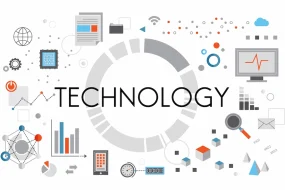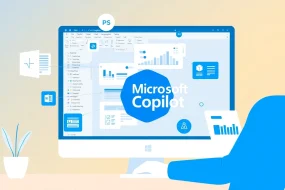- Home
- AI & Tech Tools
- Google Gemini: How Google Is R ...

In the rapidly evolving world of artificial intelligence, Google has introduced a groundbreaking development: Google Gemini. This next-generation AI model represents a significant leap in multimodal capabilities, integrating text, images, audio, and video to provide a more holistic understanding and user interaction. As AI becomes increasingly integral to our daily lives, understanding the innovations behind Google Gemini offers insight into the future of human-computer interaction.
What Is Google Gemini?
Google Gemini is a family of large language models (LLMs) developed through a collaboration between Google Brain and DeepMind. Announced in December 2023, Gemini is designed to be a Generalized Multimodal Intelligence Network capable of simultaneously processing and understanding various forms of data. This multimodal approach allows Gemini to interpret and generate content across text, images, audio, and video, setting it apart from traditional AI models that primarily focus on text. Wikipedia
Integrating these diverse data types enables Gemini to perform complex tasks, such as explaining intricate concepts in math and physics, generating creative content, and providing real-time assistance across various applications. Its development signifies Google’s commitment to creating AI that is not only powerful but also versatile and user-centric.Wikipedia+1blog.google+1
Key Features of Google Gemini
1. Multimodal Capabilities
Gemini’s standout feature is its ability to process and integrate multiple data types seamlessly. Whether interpreting a combination of text and images or analyzing audio and video content, Gemini’s multimodal approach allows for a more comprehensive understanding of complex information, enhancing its utility across various domains.
2. Integration with Google Workspace
Gemini is deeply integrated into Google’s suite of productivity tools, including Gmail, Docs, Sheets, and Slides. Features like “Help me write” in Gmail and Docs leverage Gemini’s capabilities to assist users in drafting emails and documents efficiently. This integration streamlines workflows and enhances productivity by providing intelligent suggestions and automating routine tasks. Google AI.
3. Real-Time Reasoning and Coding Support
Gemini excels in real-time reasoning, making it adept at handling complex problem-solving tasks. Its advanced coding support allows developers to generate, debug, and optimize code snippets across various programming languages. This feature benefits software development, data analysis, and educational purposes. Gemini.
4. Cross-Platform Availability
Recognizing the importance of accessibility, Google has ensured that Gemini is available across multiple platforms. Users can interact with Gemini through web interfaces, mobile applications, and integrations with other Google services, ensuring a consistent and seamless user experience regardless of the device or platform.
Gemini vs. ChatGPT, Claude, and Bard
When comparing Gemini to other prominent AI models like OpenAI’s ChatGPT, Anthropic’s Claude, and Google’s own Bard, several distinctions emerge:
- Multimodal Processing: Gemini’s ability to handle text, images, audio, and video concurrently gives it an edge in tasks requiring a holistic understanding of diverse data types.
- Integration with Google Services: Gemini’s seamless integration with Google’s ecosystem enhances its utility in everyday tasks, from drafting emails to analyzing spreadsheets.
- Real-Time Reasoning: Gemini’s advanced reasoning capabilities enable it to tackle complex problem-solving tasks more effectively than some of its counterparts.
- Privacy and Security: Leveraging Google’s robust security infrastructure, Gemini ensures user data is handled with high privacy and protection standards.
While ChatGPT is renowned for its conversational abilities and Claude emphasizes ethical AI, Gemini’s strength lies in its multimodal processing and deep integration with widely used productivity tools.
Real-World Use Cases
1. Content Creation
Gemini assists writers, marketers, and content creators by generating ideas, drafting articles, and editing content. Its ability to process visual and auditory data also enables the creation of multimedia content, such as video scripts and podcast outlines.
2. Business Analytics
Businesses leverage Gemini to analyze large datasets, generate reports, and extract actionable insights. Its integration with Google Sheets and BigQuery facilitates efficient data processing and visualization, aiding in strategic decision-making. Wikipedia.
3. Education and Research
Educators and researchers utilize Gemini to explain complex concepts, generate educational materials, and summarize academic papers. Its multimodal capabilities allow interactive learning experiences, combining text explanations with visual aids.
4. Software Development
Developers benefit from Gemini’s coding assistance, which includes code generation, debugging, and optimization. Its support for multiple programming languages and real-time feedback accelerates the development process and enhances code quality.
Google Gemini Pricing and Accessibility
Google offers Gemini in various tiers to cater to different user needs:
- Free Tier: Provides access to basic features suitable for casual users and small-scale applications.
- Gemini Advanced: Available through the Google One AI Premium plan, priced at $25 per month. This plan includes access to Gemini’s most advanced models, 2TB of cloud storage, and integration with premium features across Google services, such as Gemini+1Reddit+1Reddit.
- Enterprise Solutions: Custom pricing is available for businesses requiring large-scale deployments, offering advanced features, dedicated support, and enhanced security protocols.
Developers can also access Gemini’s capabilities through APIs, pricing based on usage metrics such as the number of tokens processed.
The Vision Behind Gemini
Google envisions Gemini as a step toward more intuitive and intelligent human-computer interactions. Gemini aims to be a versatile assistant capable of understanding and responding to complex user needs by integrating multimodal processing, real-time reasoning, and seamless connectivity across platforms. This vision aligns with Google’s goal of making AI more helpful, accessible, and aligned with human values.
How to Access and Use Google Gemini
Users can interact with Gemini through various channels:
- Web Interface: Access Gemini via the official website, where users can engage in conversations, seek assistance, and explore its capabilities.
- Mobile Applications: Gemini is a standalone app for Android and iOS devices, offering on-the-go assistance and integration with mobile workflows.
- Google Workspace Integration: Users of Gmail, Docs, Sheets, and other Google services can utilize Gemini’s features directly within these applications, enhancing productivity and efficiency.
- API Access: Developers can integrate Gemini into their applications and services through Google’s API offerings, enabling customized AI solutions.
Final Thoughts
Google Gemini represents a significant advancement in artificial intelligence, offering a versatile, multimodal approach to understanding and generating content. Its integration with Google’s ecosystem, real-time reasoning capabilities, and accessibility across platforms make it a powerful tool for individuals and businesses alike. As AI continues to evolve, Gemini stands as a testament to the potential of technology to enhance our daily lives, streamline workflows, and foster innovation.
Note: The information provided in this blog is based on available data as of May 2025. For the most current details and updates on Google Gemini, please refer to the official Google Gemini website.







